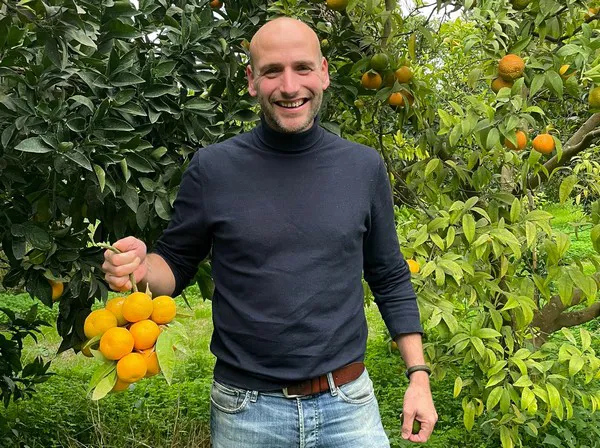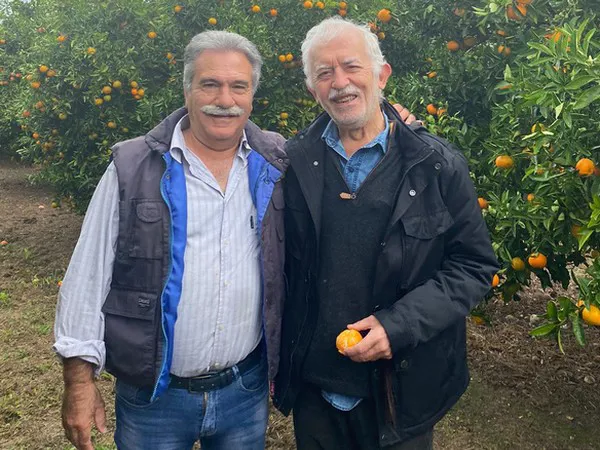In Europe, inflation is causing some countries' organic fruit and vegetables growth to stagnate. However, Pieter de Keijzer, who founded the Dutch company Fruitprint – that, for the past two and a half years, has been connecting organic fruit and vegetable growers with supermarkets and distributors - is highly confident that this category has a bright future in the long run.
"Demand from increasingly aware consumers and governments will drive that. That will encourage the conversion to organic cultivation. Large European retail chains are really pushing to convert lines to all-organic. At present, that often involves relatively small products like limes. But once such a program is available year-round organically, the choice is made. That's also a huge driver for growers choosing to farm organically," begins Pieter.
However, current high costs are affecting that sector too, especially on the production side, he says, noting that these increased costs cannot always be passed on. "Not necessarily because buyers don't want that. We have to stay competitive - especially on the organic side - because otherwise, sales will drop. And winning those sales back is even more of a challenge. Although margins are under pressure this year, staying on store shelves is also important." Organic production is expanding rapidly worldwide, yet, notes Pieter, inflation is leading to a focus on chain efficiency to cut costs and remain profitable. He, thus, expects traditional brokers to have a tough time.

Pieter de Keijzer of Fruitprint that connects organic fruit and vegetable growers directly to supermarket or distributor
No surprises
Fruitprint sees that its way of working - a transparent chain that directly connects growers and buyers - is undoubtedly advantageous in these times. "This model uses fewer links and is, therefore, more competitive, ultimately leaving a margin for growers and allowing retailers to continue their offer well. The direct relationship and working with fixed programs means growers can better estimate, beforehand, what their returns will be, and where they stand," says Pieter.
"That's always an unknown in traditional trade. There, you often don't hear what you’ll make until afterward, and growers may not even know where their produce is going. We're trying to fill that in more. That means costs, and thus profits, are calculated in advance." Pieter says growers indicate this direct cooperation undoubtedly leaves them with more of a bottom line than before. "But buyers are happy with the shorter, fully transparent chain too."
He points out that Fruitprint is not a chain link; it directs much of that chain. Fruitprint is involved in the process from the beginning until the products are delivered to customers. The company’s tasks include things like setting up and implementing programs, price negotiations, registering growers with supermarkets, and communication around certifications. "So truly unburdening both the growers and the end buyers," explains De Keijzer.
"Because organization-wise, there's quite a lot involved. But ultimately, the business connection is directly between growers and buyers; Fruitprint wants to create commitment between growers and supermarkets. The grower shouldn't be just a name on a certificate; their backstory and circumstances must be known. And vice versa, of course, so growers also genuinely understand what buyers need to expand sales."

Fruitprint handles citrus year-round, including goods from Greece and Egypt
Growers' starting point
From the growers' side, says Pieter, the goal is to connect them to different customers so they can market their entire assortment. Fruitprint mainly brings growers and (organic) supermarkets together but is also active on the industry side, especially the juice industry. Important contacts as far as he is concerned, because less attractive fruit needs to be sold too. Fruitprint is active in Europe, with Germany, Austria, and Denmark its main market. Although, adds Pieter, the Netherlands and Belgium are also solidly on the agenda for the coming year.
"In terms of growers and products, we currently specialize in year-round organic citrus from Greece, Egypt, Morocco, Spain, and South Africa,” Pieter continues. “And Peruvian ginger, Argentinian apples and pears, and Spanish and Greek vegetables and melons - all organic. Growth in these segments and expansion, especially in the Dutch market, in both cultivation and sales, will primarily mark this year.”
Here, the challenge for Fruitprint lies in convincing buyers of the added value of working directly with growers. Transparency plays a big role in that. "I don't think supermarkets can make it by buying products without knowing what growers get for them in the end. It's hugely challenging to create awareness and accountability among buyers to see that what growers need to produce is where it should start," Pieter concludes.
For more information:
Pieter de Keijzer
Fruitprint
Pieter@fruitprint.eu
fruitprint.eu
